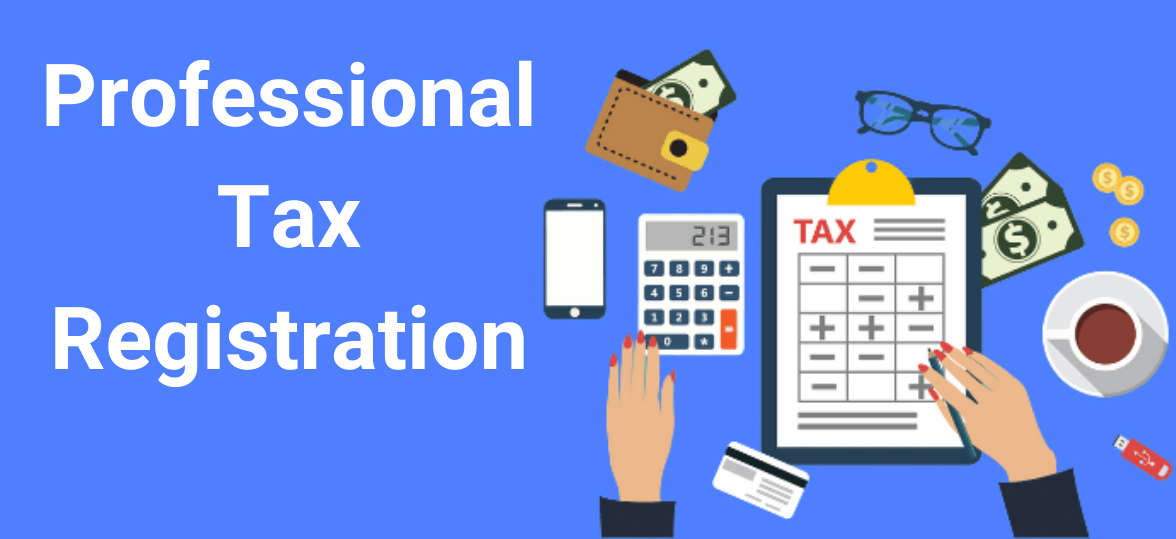What is Professional Tax Registration in India?

Professional tax registration in India is a critical statutory compliance for businesses, professionals, and salaried individuals. Despite its name, professional tax is not restricted to traditional “professions” but applies to a wide range of occupations, trades, and employments. Understanding its purpose, process, and implications is essential for anyone earning an income through employment or business in India.
What is Professional Tax?
Professional tax is a state-level tax imposed on income earned by individuals engaged in professions, trades, or employment. It is governed by the respective state governments and collected by the local Commercial Tax Department. The tax amount and rules vary from state to state, as each state has the authority to frame its own professional tax laws within the constitutional limit set by Article 276 of the Indian Constitution.
The revenue collected through professional tax is used by state governments to improve local infrastructure and public services. While some states impose this tax, others do not levy professional tax at all.
Who Must Register for Professional Tax?
Professional tax registration is mandatory for:
- Employers: All employers—including private companies, government bodies, and NGOs—must register and deduct professional tax from their employees’ salaries, then remit it to the state government.
- Salaried Employees: Employees are subject to professional tax deduction by their employers.
- Self-employed Individuals: Professionals such as doctors, lawyers, chartered accountants, and consultants must register and pay professional tax directly.
- Businesses: Sole proprietors, partnerships, LLPs, and corporations engaged in trade or commerce are required to register.
- Freelancers: Individuals offering freelance services across sectors must comply with professional tax regulations.
Exemptions from Professional Tax
Certain categories are exempt from professional tax registration, including:
- Agricultural workers (engaged in agriculture, horticulture, animal husbandry, or fishing)
- Textile industry employees
- Persons with disabilities (certified by the state government)
These exemptions are designed to reduce the tax burden on specific sectors and vulnerable groups.
Types of Professional Tax Certificates
There are two primary certificates relevant to professional tax compliance:
- Professional Tax Enrollment Certificate (PTEC): For self-employed professionals, business owners, and entities, allowing them to pay professional tax for themselves.
- Professional Tax Registration Certificate (PTRC): For employers, authorizing them to deduct and remit professional tax on behalf of their employees.
Professional Tax Registration Process
The process for professional tax registration can be completed online or offline, depending on the state’s provisions.
Online Registration
- Eligibility Check: Determine if your business or profession falls under your state’s professional tax requirements.
- Document Preparation: Gather necessary documents such as PAN card, address proof, identity proof, business registration certificate, and employee details.
- Application Submission: Fill out and submit the professional tax registration application through the state’s online portal.
- Verification: The tax authorities review the submitted documents and application for accuracy.
- Certificate Issuance: Upon approval, you receive the professional tax registration certificate (PTEC or PTRC).
- Periodic Filing: Regularly file professional tax returns and remit the collected tax as per state deadlines.
- Processing Time: In major cities, registration can be completed within 10 days; in other areas, it may take up to 15–20 working days.
Offline Registration
- Visit Local Tax Office: Go to the local Professional Tax Office or Municipal Corporation.
- Obtain Application Form: Collect and fill out the professional tax registration form with personal/business details and income proof.
- Attach Documents: Submit the form along with required documents (PAN, address proof, business registration, etc.).
- Submit Application: File the completed form and documents at the tax office and obtain an acknowledgment receipt.
- Receive Certificate: After verification, the registration certificate is issued, allowing you to start making professional tax payments.
Fees and Penalties
Professional tax registration fees are generally nominal and vary by state, depending on the business type and size. Some states charge a one-time registration fee, while others may require periodic renewals. Failure to register or remit professional tax on time can result in fines, interest, and penalties, making timely compliance essential.
Benefits of Professional Tax Registration
- Legal Compliance: Ensures adherence to state laws and avoids penalties.
- Business Credibility: Enhances reputation and trust among employees, clients, and authorities.
- Employee Management: Facilitates systematic deduction and remittance of professional tax, ensuring transparency in payroll.
- Financial Planning: Aids in better budgeting and financial management for businesses.
- Eligibility for Government Contracts: Many tenders require proof of professional tax compliance.
- Streamlined Audits: Simplifies audits and inspections by maintaining proper tax records.
Conclusion
Professional tax registration in India is a vital legal requirement for businesses, professionals, and salaried individuals operating in states where this tax is applicable. The process, while straightforward, demands careful documentation and timely compliance to avoid penalties. Beyond fulfilling a statutory obligation, professional tax registration strengthens business credibility, streamlines payroll management, and contributes to state development by funding public infrastructure and services. Understanding the nuances of professional tax registration ensures smooth business operations and fosters trust among stakeholders.
Note: IndiBlogHub features both user-submitted and editorial content. We do not verify third-party contributions. Read our Disclaimer and Privacy Policyfor details.



